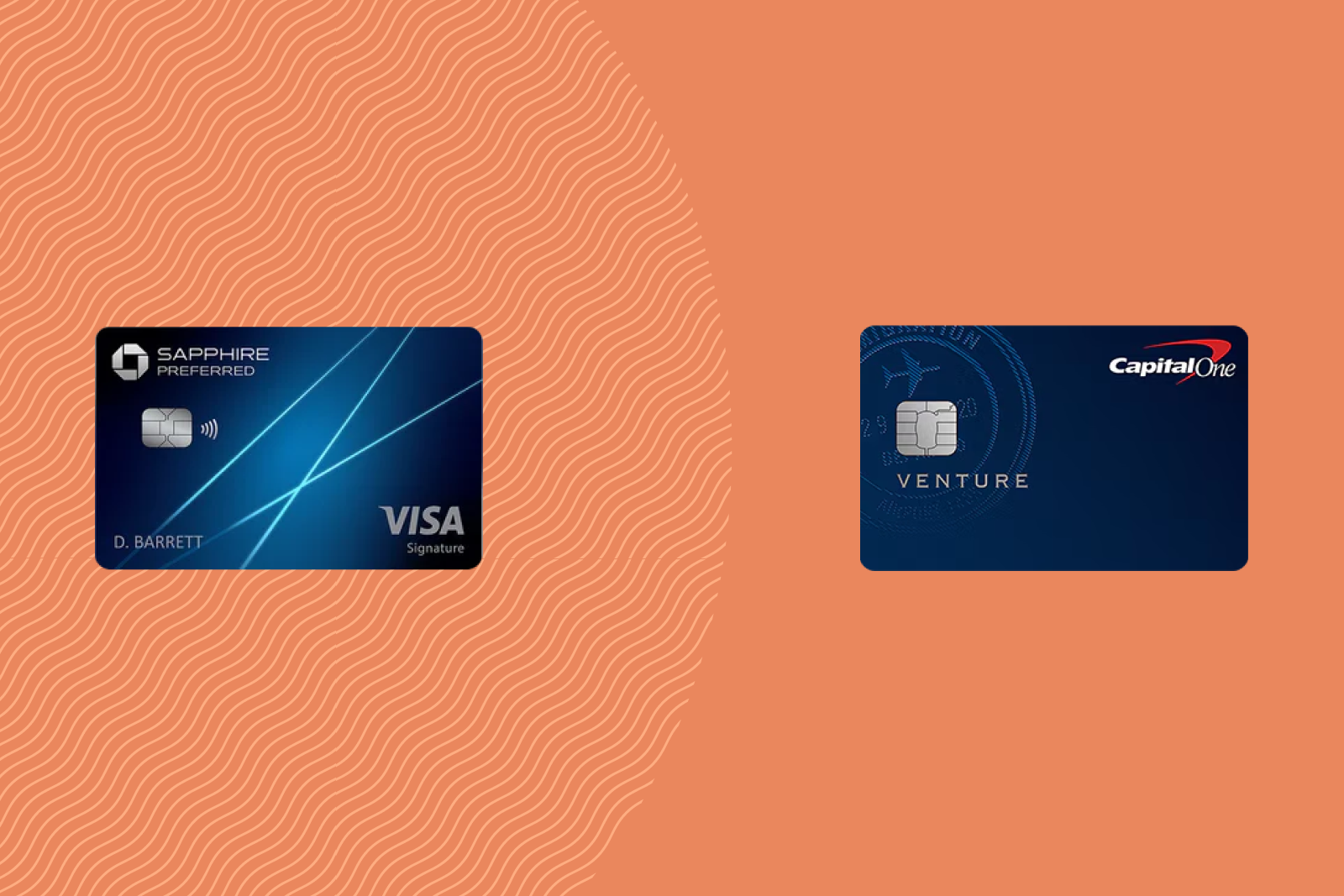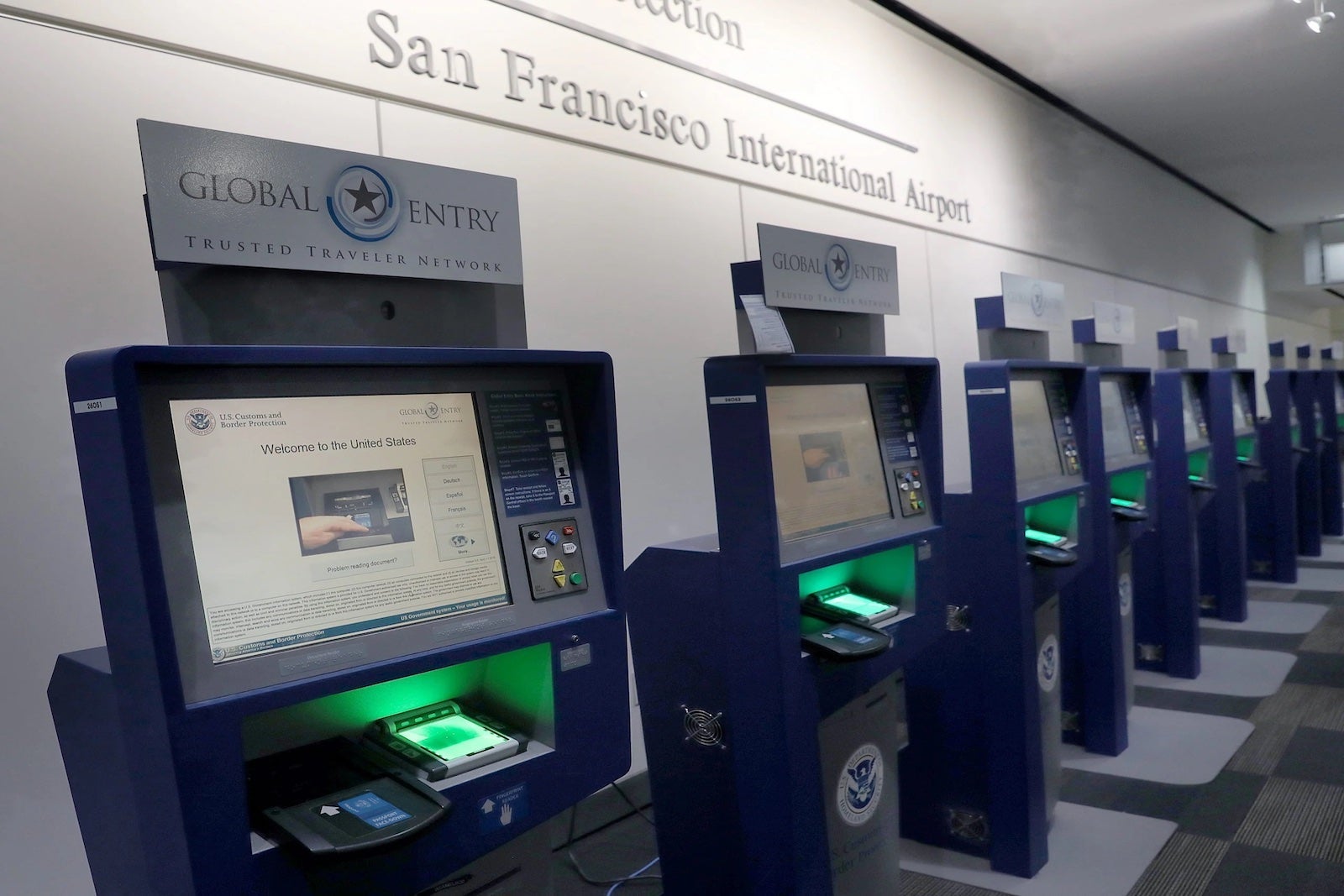Chase Sapphire Preferred vs. Capital One Venture Rewards: Sapphire Preferred is better for most
Editor's Note
Shelling out hundreds of dollars in annual fees for premium credit cards is not for everyone, especially when you're new to points and miles. Fortunately, plenty of travel credit cards will set you back less than $100 a year in annual fees and still earn lucrative rewards to help you book that epic trip of your dreams.
Among the top cards in this category are the Chase Sapphire Preferred® Card (see rates and fees) and the Capital One Venture Rewards Credit Card. Both come with manageable annual fees for beginners and experts and a recommended credit score of 670 or higher.
Let's look at how these two cards stack up in a head-to-head comparison.
Chase Sapphire Preferred vs. Capital One Venture comparison
Here are the basics of each of these two cards in the major categories:
| Card details | Chase Sapphire Preferred | Capital One Venture Rewards |
|---|---|---|
Annual fee | $95 | $95 |
Welcome bonus | Earn 75,000 bonus points after you spend $5,000 on purchases in the first three months of account opening. | Earn 75,000 bonus miles when you spend $4,000 on purchases within the first three months from account opening. Plus, upon approval, you'll receive a $250 Capital One Travel credit to use during your first year. |
Bonus categories |
|
|
TPG March 2025 valuation of rewards currency | 2.05 cents each | 1.85 cents each |
Foreign transaction fees | None | None |
Travel protections |
|
|
Other benefits |
|
|
*Benefits only available to accounts approved for the World Elite Mastercard. Terms apply.
Chase Sapphire Preferred vs. Capital One Venture welcome offer
Both cards are currently offering solid welcome bonuses that can provide a ton of value to new cardholders.

The Sapphire Preferred is currently offering 75,000 bonus points after you spend $5,000 on purchases in the first three months of account opening.
TPG's March 2025 valuations peg Chase Ultimate Rewards points at 2.05 cents each, meaning this welcome offer is worth $1,538.
The Venture Rewards card offers new cardholders 75,000 bonus miles after they spend $4,000 on the card within the first three months of account opening. Plus, upon approval, you'll receive a $250 Capital One Travel credit to use during your first year.

The Venture Rewards could be worth up to $1,638 if you transfer your miles to Capital One's airline or hotel transfer partners (and include the value from the travel credit) per TPG's March 2025 valuation of Capital One miles at 1.85 cents each.
Winner: Tie. The Venture Rewards is worth more with the travel credit, but it ultimately comes down to your preference for Capital One miles or Chase Ultimate Rewards points.
Related: How (and why) you should earn transferable points
Chase Sapphire Preferred vs. Capital One Venture benefits
Both cards offer an array of benefits that add even more value.
The Venture Rewards benefits include no foreign transaction fees, extended warranty protection and travel benefits such as secondary rental car insurance and travel accident insurance.
You'll also get up to $120 Global Entry/TSA PreCheck application fee credit. This perk is generally seen on cards with higher annual fees, and it can make a huge difference in speeding up your journey through the airport.

The Sapphire Preferred is a Visa Signature card and offers similar benefits but kicked up a notch. Most notably, it includes primary rental car coverage rather than secondary, meaning you can submit claims directly to your card's benefits provider without involving your personal insurance policy.
Plus, the Sapphire Preferred's travel benefits are also superior — up to $500 per covered traveler in trip delay reimbursement if you're delayed more than 12 hours or overnight, up to $10,000 in trip cancellation and interruption insurance per person (up to $20,000 per trip) and up to $100 per day for up to five days in baggage delay reimbursement if your bag is delayed more than six hours.
On top of that, the card offers an annual $50 statement credit on hotel stays purchased through the Chase travel portal and a 10% anniversary points bonus.
Winner: Sapphire Preferred. You'll enjoy slightly more benefits with the Chase offering here.
Related: Chase Sapphire Preferred benefits you might not know about
Earning rewards on the Capital One Venture vs. Chase Sapphire
With the Capital One Venture Rewards, you'll earn 5 miles per dollar on hotels, vacation rentals and rental cars booked through Capital One Travel and 2 miles per dollar on all other purchases.

With the Sapphire Preferred, you'll get:
- 5 points per dollar on all travel purchased through Chase Travel
- 3 points per dollar on dining (including eligible delivery services, takeout and dining out)
- 3 points per dollar on select streaming services
- 3 points per dollar on online grocery purchases (excluding Target, Walmart and wholesale clubs)
- 2 points per dollar on all other travel
- 1 point per dollar on all other purchases
Travel is defined quite broadly with the Sapphire Preferred and includes some everyday expenses, such as tolls, parking and subway tickets. The dining category is also broad, including standard restaurants, bars and coffee shops, food delivery services and even most vending machines.
Winner: Tie. The Capital One Venture comes out ahead on everyday spending but falls behind in bonus categories, which is where the Sapphire Preferred shines. It depends on your spending patterns.
Related: Comparing flat-rate with bonus-category cash-back credit cards
Redeeming rewards on the Capital One Venture vs. Chase Sapphire
Both cards allow you to redeem rewards for many purchases. However, travel redemptions always provide the best value.
If you prefer a simple redemption option, you can redeem Venture Rewards Capital One miles at a fixed value of 1 cent each toward travel bookings made through Capital One Travel or use them to offset any recent travel purchase.

If you're not seeking travel rewards, you can redeem your miles for gift cards, cash back or on Amazon and PayPal purchases — but know it will be at subpar redemption rates.
Similarly, you can redeem Chase Ultimate Rewards points can be redeemed toward travel at a fixed value or transferred. If you book travel reservations through Chase Travel, you can redeem points at a value of up to 1.75 cents per point, depending on the specific redemption (see your rewards program agreement for full details).
Winner: Sapphire Preferred.
Related: How to use your Capital One miles for maximum value
Transferring rewards on the Capital One Venture vs. Chase Sapphire
You can squeeze more value from your Capital One miles by transferring them to Capital One's 15-plus airline and hotel transfer partners. Most transfers are at a 1:1 ratio.
Since the card earns 2 Capital One miles per dollar on everyday spending, you'll earn at least 2 airline miles or hotel points per dollar spent on every purchase, depending on the specific program to which you transfer your miles.

Similarly, the way to get top value from your Chase Ultimate Rewards points is by transferring them to one of Chase's airline and hotel partners, including valuable options like United MileagePlus, Iberia Plus and World of Hyatt.
Winner: Sapphire Preferred. Chase Ultimate Rewards gets the edge for offering more lucrative transfer options (namely United and Hyatt, which are not Capital One partners).
Related: The best ways to use Chase Ultimate Rewards points
Should I get the Capital One Venture or Chase Sapphire Preferred?
While the value you can get from the cards depends heavily on your spending habits, most cardholders will be better off with the Sapphire Preferred. In most cases, Chase Ultimate Rewards points are more valuable than Capital One miles. Plus, the Sapphire Preferred earns more in bonus spending categories and offers better travel protections.
Bottom line
These two cards aren't mutually exclusive. After all, the Capital One Venture Rewards is one of the best Capital One credit cards, and the Chase Sapphire Preferred is one of the best Chase credit cards on the market. They actually complement each other well if you own both.
However, the Sapphire Preferred generally provides more value. So, if you're truly stuck between the two, we recommend going with that one.
For more details, see our full reviews of the Venture Rewards and Chase Sapphire Preferred.
Learn more: Capital One Venture Rewards
Apply here: Chase Sapphire Preferred
*For Capital One products listed on this page, some of the benefits may be provided by Visa® or Mastercard® and may vary by product. See the respective Guide to Benefits for details, as terms and exclusions apply.



